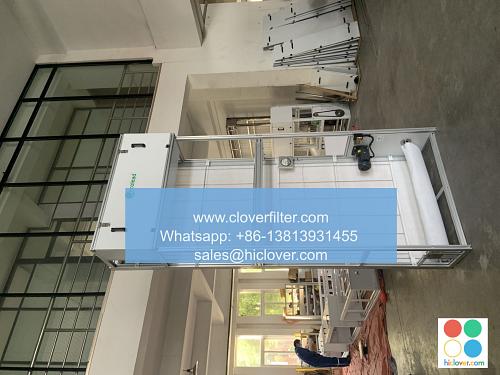Indoor Air Quality Improvement: The Mission of Air Filter Organizations

Indoor air quality is a critical aspect of maintaining a healthy and comfortable living or working space. With the increasing awareness of the importance of air quality, air filter organizations have emerged as a vital component in the mission to improve indoor air quality. These organizations specialize in designing, manufacturing, and installing high-efficiency air filters and air purification systems to remove pollutants, allergens, and other airborne contaminants from indoor air.
Application Areas of Air Filter Organizations
Air filter organizations cater to a wide range of application areas, including:
* Residential air quality improvement: Providing whole-house air filtration systems and portable air purifiers to remove airborne pollutants, allergens, and bacteria from homes.
* Commercial air quality improvement: Installing high-efficiency air filters and air purification systems in offices, schools, hospitals, and other commercial buildings to maintain a healthy indoor environment.
* Industrial air quality improvement: Designing and manufacturing custom air filtration systems for industrial applications, such as manufacturing facilities, warehouses, and laboratories.
* Healthcare air quality improvement: Providing advanced air filtration systems and UV air purifiers to hospitals, clinics, and other healthcare facilities to prevent the spread of airborne diseases.
Key Technologies Used by Air Filter Organizations
Air filter organizations employ various technologies to improve indoor air quality, including:
* HEPA filtration technology: Using High Efficiency Particulate Air (HEPA) filters to remove 99.97% of airborne particles as small as 0.3 microns.
* Activated carbon filtration technology: Utilizing activated carbon filters to remove gases, odors, and chemicals from indoor air.
* UV air purification technology: Employing ultraviolet (UV) light to kill bacteria, viruses, and other microorganisms in indoor air.
* Ionization technology: Using negative ions to attract and remove airborne pollutants, allergens, and bacteria.
Benefits of Improved Indoor Air Quality
The benefits of improved indoor air quality are numerous, including:
* Improved health and well-being: Reducing the risk of respiratory problems, allergies, and other health issues associated with poor indoor air quality.
* Increased productivity: Maintaining a healthy and comfortable indoor environment to boost productivity and focus.
* Extended equipment life: Preventing damage to equipment and machinery caused by airborne pollutants and contaminants.
* Energy efficiency: Reducing energy consumption by using high-efficiency air filters and air purification systems.
Conclusion
In conclusion, air filter organizations play a vital role in improving indoor air quality by providing high-efficiency air filters and air purification systems for various application areas. By employing key technologies such as HEPA filtration technology, activated carbon filtration technology, UV air purification technology, and ionization technology, these organizations help maintain a healthy and comfortable indoor environment, reducing the risk of respiratory problems, allergies, and other health issues. As awareness of the importance of indoor air quality continues to grow, the mission of air filter organizations will become increasingly critical in promoting public health and well-being. It seems like you haven’t provided a prompt or question for me to respond to. Please provide more context or information so I can assist you better. What would you like to talk about or ask?

